A journey into 1984: The year the Official Chart embraced queer pop music
In his debut book 1984: The Year Pop Went Queer, journalist and critic Ian Wade explores the rise of gay culture into the mainstream.
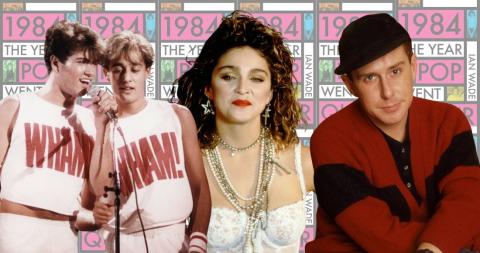
In his first book 1984: The Year Pop Went Queer, music journalist and critic Ian Wade celebrates a watershed moment for pop music and queer culture.
Published today (July 18) via Nine Eight/Bonnier Books, 1984: The Year Pop Went Queer is a tender and considered exploration and examination of how underground gay culture became subsumed into the Official Chart, lead by boundary-breaking artists like Madonna, George Michael, Frankie Goes To Hollywood and Bronski Beat, many of whom were queer themselves, but not out at the time, an irony considering how influential their music has been to the generations of queer kids who have risen up since.
Read an extract of the book below, and also be sure to purchase your own copy from the link options below.*
1984: The Year Pop Went Queer by Ian Wade is out now via Nine Eight Books.
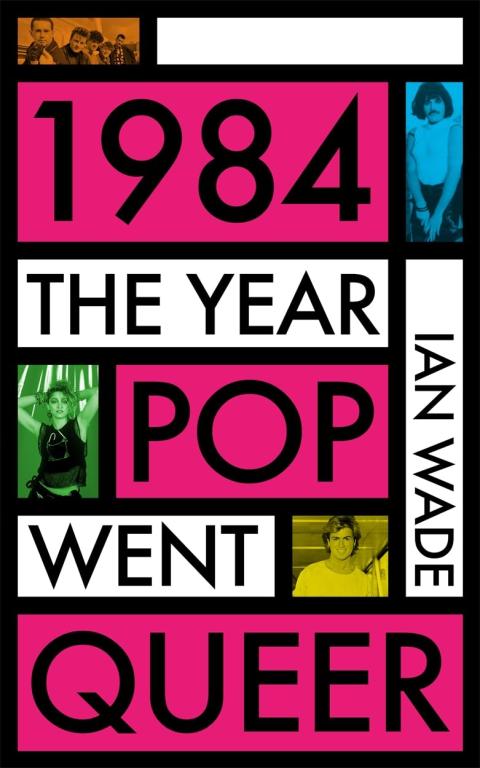
Buy now from: Amazon | WHSmith | Rough Trade
An extract from 1984: The Year Pop Went Queer
1984 promised many things, if you were taking George Orwell’s dystopian novel as some kind of handbook that is, but what actually transpired was a quiet revolution of LGBTQ+ acts and allies making their mark on the year in the charts.
As the year began, the first Top of the Pops of 1984 was opened with Frankie Goes To Hollywood making their show debut with Relax, which had finally crept into the Top 40 after three months. An instant success, that performance saw the song soar up to Number 6 before spending five weeks at the top, however the jubilations were dampened after BBC Radio 1 DJ Mike Read objected to the song during a chart rundown, and refused to play it, leading to the BBC banning Relax on the grounds that it was a bit too saucy. The station had already played it on several shows, and the original, slightly fruity, video had been knocking around for a while too. Aided with a series of remixes, no other act had quite such an impact on the charts, and Relax’s sales now stand at 2.08 million, making it the UK’s biggest-selling debut single of all time.
Throughout the first few months of the year, a series of gay club anthems snuck into the charts after hanging around for anything up to two years, after a change in how sales were collated meant that these songs that had been selling healthily in specialist shops, made their breakthrough into the upper reaches. Anthems such as Gloria Gaynor’s I Am What I Am, Eartha Kitt’s Where Is My Man, Miquel Brown’s So Many Men So Little Time and The Weather Girls’ It’s Raining Men all hitting the Top 40.
Spookily making their UK chart debut into the Top 100 on the same week were Cyndi Lauper with Girls Just Want To Have Fun and Madonna with Holiday. Although Cyndi was initially considered the racier of the pair, and Madonna was just seen as something of a club sensation, the two of them would go on to be key voices and staunch allies of LGBTQ+ people, as well as raising awareness and lots of money for AIDS charities to this day.
The Scottish trio Bronski Beat upended what people thought of gay artists in May when they released their debut single Smalltown Boy that May. Fiercely political, the trio of Jimmy Somerville, Steve Bronski and Larry Steinbachek showed that you didn’t need to dress up, and looked like the boys next door. Smalltown Boy’s impact was immense in reflecting the lives of gay people, and the gritty video with homophobia and parental upset chimed with many an LGBTQ+ person up and down the country. Their follow-up Why? was an angry pumper, based in truth about the homophobic murder of one of their friends. Even the debut album, The Age Of Consent, came festooned with pink triangles – one of the main symbols of the gay movement, reclaimed having originally been used as a marker to distinguish gay prisoners in Nazi concentration camps – and listed the actual ages of consent around the world on the inner sleeve. Almost overnight the hints of otherness, and the ‘just not met the right girl yet’ that came with the impacts of Soft Cell and Culture Club started to look a bit behind the curve. That said, Boy George was still a global superstar, becoming the first man on the cover of Cosmopolitan and offering a new way of expression to millions of fans.
Making its presence felt on the charts across the year was high energy, a sound that originated on the gay club dancefloors, and offered up its theme song with High Energy by Evelyn Thomas, making the Top 5 that June. One artist who’d become the queen of the sound was Hazell Dean, whose Searchin’ (I Gotta Find A Man) peaked at Number 6 in June, and her follow-up Whatever I Do (Wherever I Go) provided the relatively new production trio Stock Aitken & Waterman with their first Top Ten hit, after Divine had given them their first Top 20 smash with You Think You’re A Man that July. SAW’s first chart-topper would be released that October, with Dead Or Alive’s bombastic pumper You Spin Me Round (Like A Record) making the slow climb to Number 1 the following February and becoming the first of 13 Number 1s over the second half of the decade, creating pretty much the sound of pop as we know it. Another act who would make their debut in 1984 were the Pet Shop Boys, whose first single West End Girls, inspired by the sound of gay clubland in New York, failed to chart, but after a reswizzle became their first chart-topper and the beginning of a classic catalogue of hits that spoke to fans across the spectrum, and brought queer and legendary artists such as Liza Minnelli, Dusty Springfield, Derek Jarman and Ian McKellen into pop’s orbit.
The other big act of the year were Wham!, who sprung back with the Number 1 single Wake Me Up Before You Go-Go, and only got bigger with the follow-ups Freedom and Last Christmas, as well as George Michael launching his solo career in the midst of their imperial phase with the smoocher Careless Whisper. While not publicly out at the time, George had only revealed to his bandmates that he was gay at the start of the year, he parked it away in order to build on their success and not to upset his family or any of their mostly teenage fanbase. By the end of the decade, George would be one of the biggest-selling artists on the planet, and would use his fame to help others, as well as turning the narrative of the tortured gay artist on its head in the nineties.
And how about Queen, who returned all guns blazing in 1984 with The Works after the relative disappointing sales of their – whisper it, really ace – Hot Space album, not only to have Radio Ga Ga denied the top spot by Frankie’s Relax, but also having their career in America demolished with the video to I Want To Break Free, in which Freddie and chums dragged up as various Coronation Street characters.
It was all there. A hovering of gay culture beginning to seep into the mainstream, with pop music leading the way against a backdrop of fear, death and homophobia. 1984 was the breakthrough year where a host of voices made a generation of LGBTQ+ fans feel seen and heard. The reverberations of those twelve months can still be felt today.
1984: The Year Pop Went Queer by Ian Wade is out now via Nine Eight Books.
Buy now from:
Amazon | WHSmith | Rough Trade
Images: Getty Images/Bonnier Books
*This article contains affiliate links, if you purchase using one of the above links Official Charts may earn a small commission at no extra cost to you.
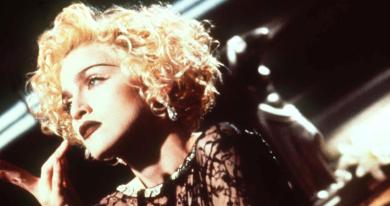
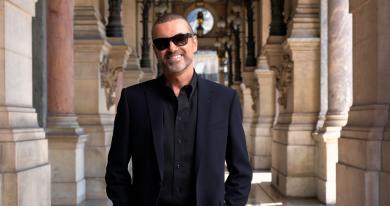


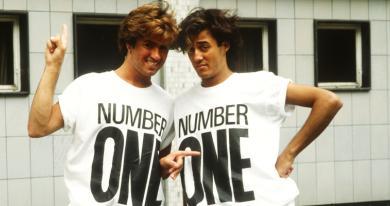
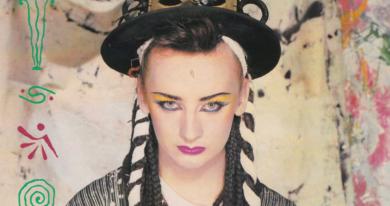
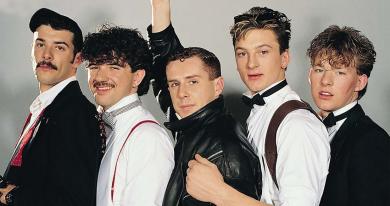


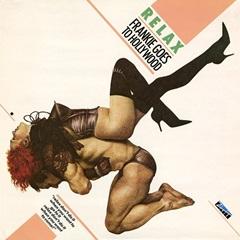

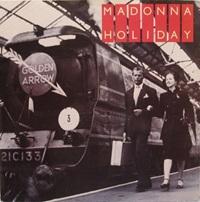

Join the conversation by joining the Official Charts community and dropping comment.
Already registered?
Log in
No account?
Register
H
hihi
At the end of the day we're all people. I don't hate lgbt but you don't deserve extra promo for choosing to love someone or classifying as something. We're all humans (to be clear I have trans,gay,non binary friends im not anti lgbt)
S
ScottT
What a shame they have out queer in to the title. As a gay man there in 1984, I hated being called queer. It was a derogatory term and I still find it that way. I'm normal. Not queer. That is what we were fighting for back then as lesbians, gays and bisexuality. Let's not rename history please.
predigitalwasbest
Anthems such as Gloria Gaynor’s I Am What I Am, Eartha Kitt’s Where Is My Man, Miquel Brown’s So Many Men So Little Time and The Weather Girls’ It’s Raining Men all hitting the Top 40.
Miquel Brown's 'so many men,so little time' didn't make the top 75 so a bit off the mark with that one. Looks an interesting,if rather lightweight,read.